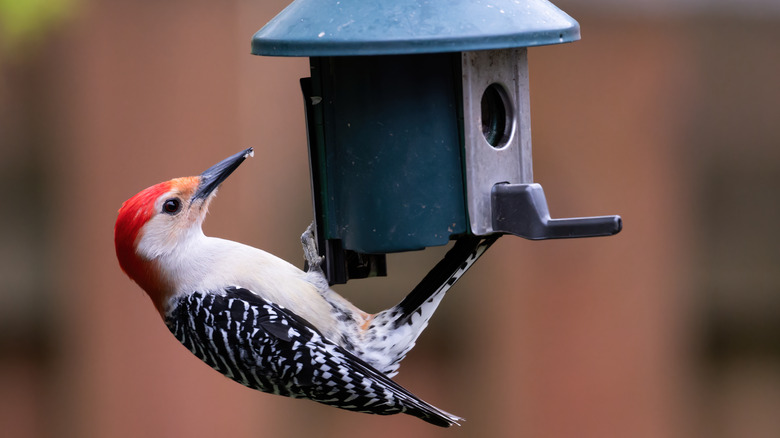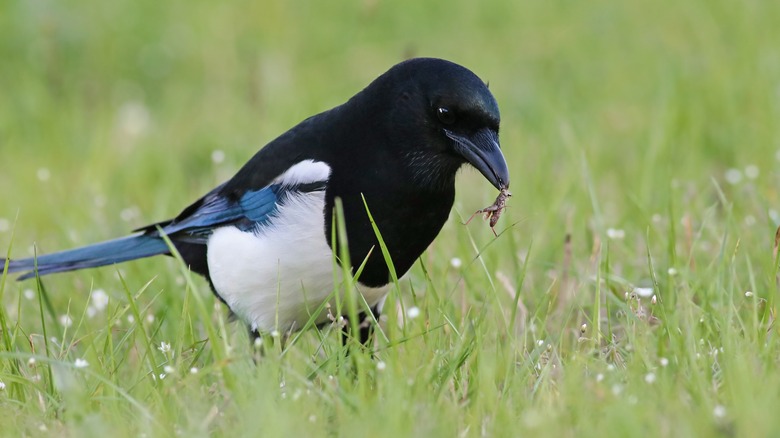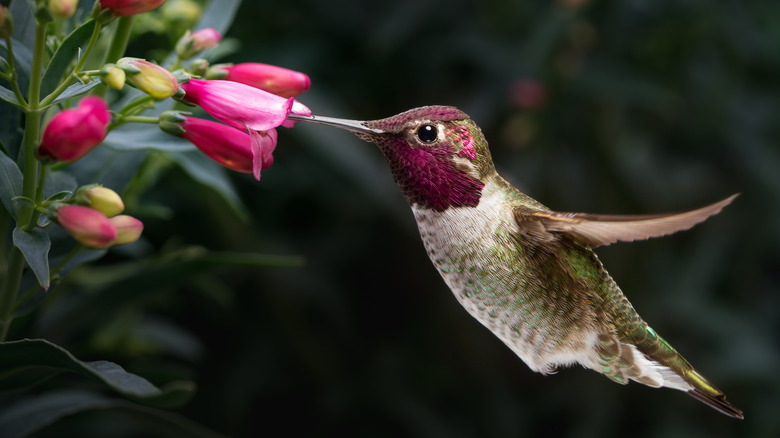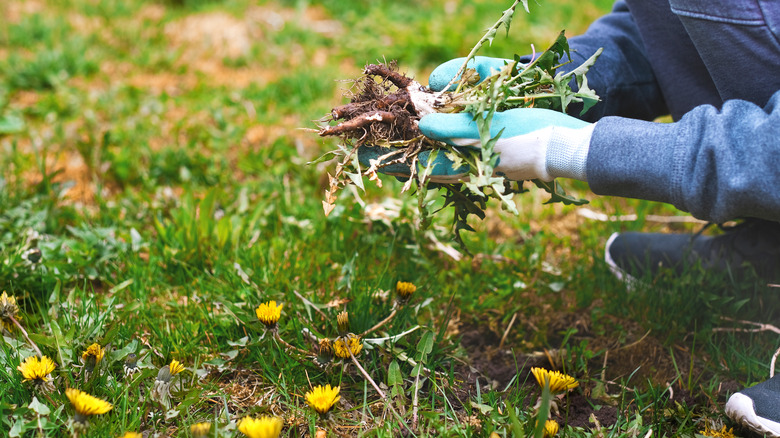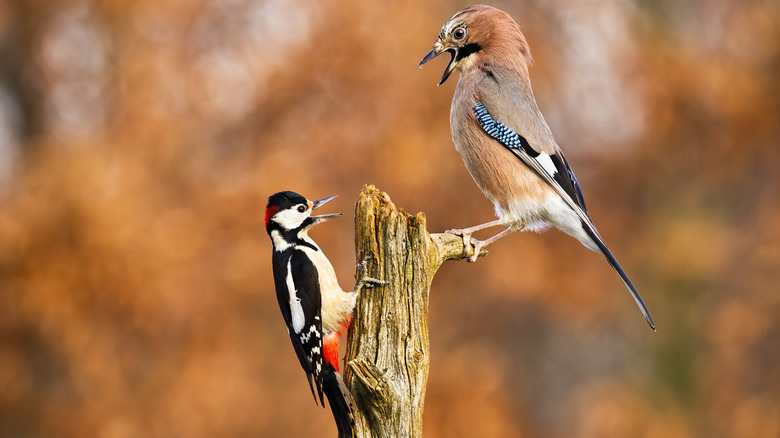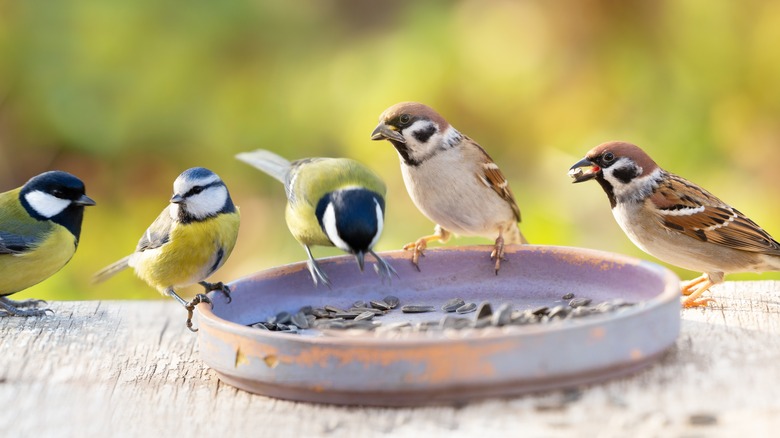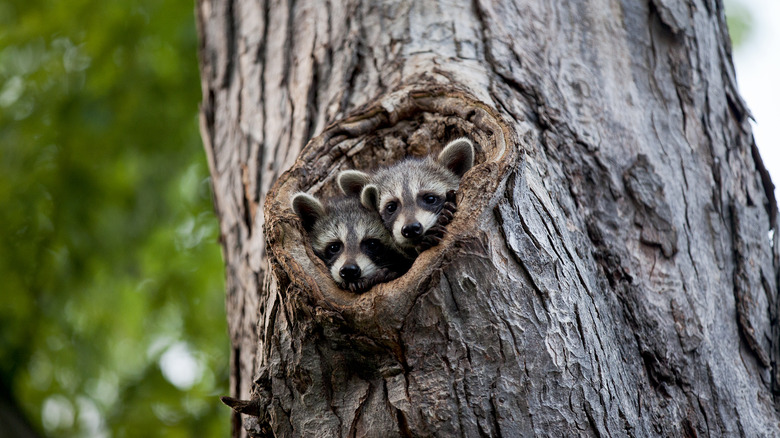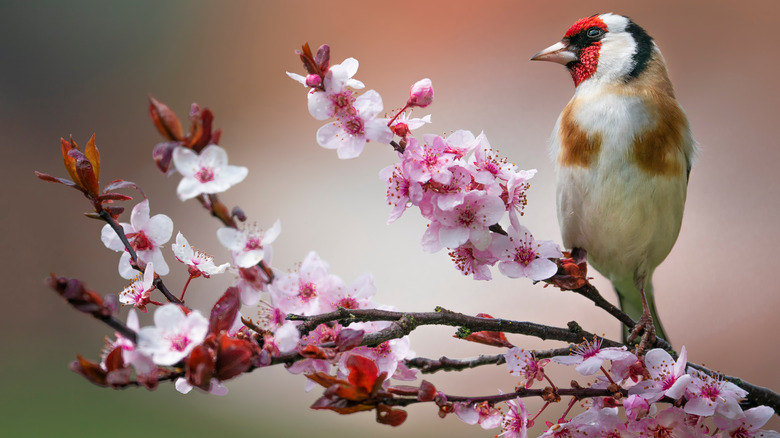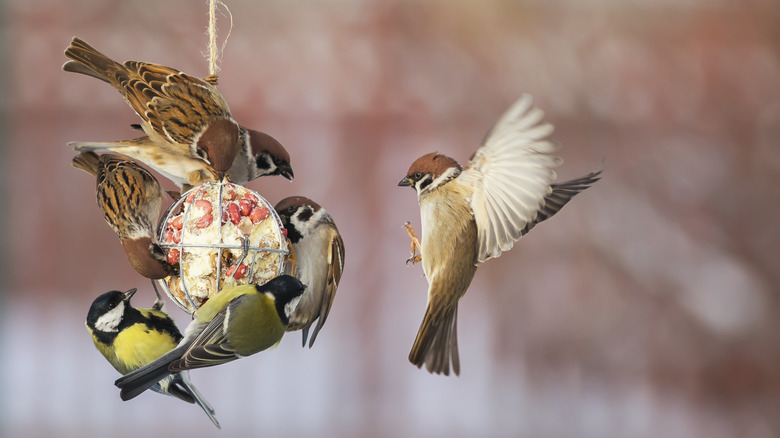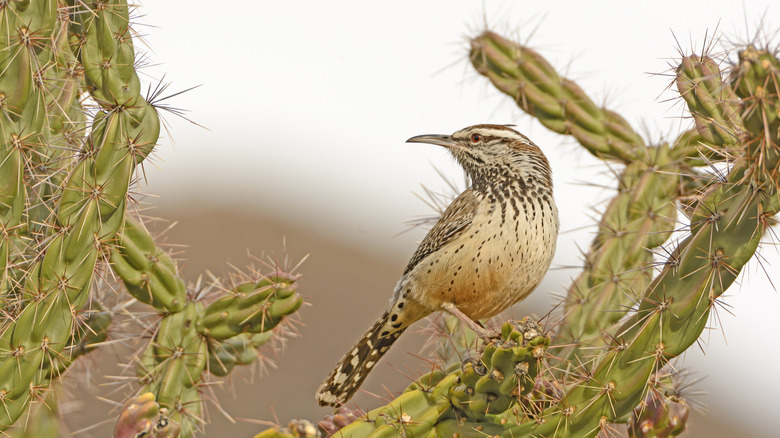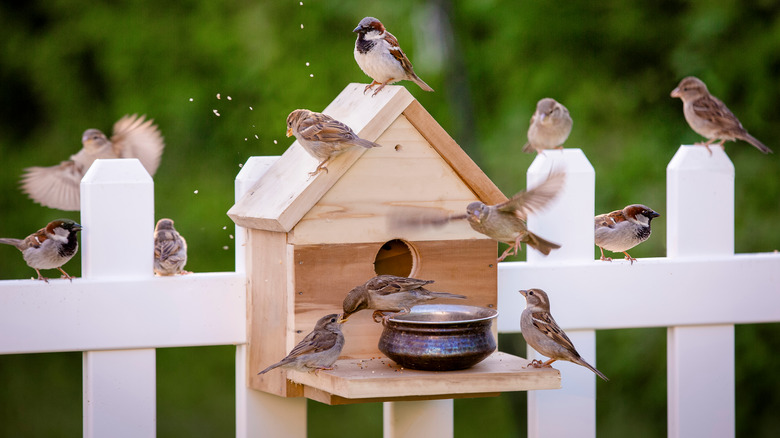Benefits Of Having A Bird Feeder In Your Yard
There are many benefits to having bird feeders in your yard. They can attract a wide variety of bird species to your yard that you might not otherwise see. Having more birds around is important because the more in the area, the better. This is because birds are a keystone species to healthy lawns. They eat the bugs that can destroy your vegetable gardens, pollinate your flowers, and can even eat the weeds that might strangle your plants before they take root. The best part is birds do all of this gardening naturally. By installing bird feeders, you are encouraging birds to play their natural role in your yard's ecosystem.
Installing more bird feeders in your yard has even more benefits than a healthier garden. In fact, some experts agree that the consistent presence of birds on your property can even raise your home's resale value. That's quite the return on investment for a bag of birdseed and a small feeder or two from the hardware store. Here are all the ways bird feeders benefit your lawn and why you should add one today.
1. Birds keep insects out of your yard
By adding a bird feeder to your yard, you'll bring more birds to your outdoor space. The more birds in your yard, the fewer insects on the scene, thus reducing the need for harmful chemical pesticides. If you want a more natural solution for getting rid of insects, rodents, and other pests to keep your garden healthy and thriving, installing a bird feeder should be the first step. While most birds eat seeds, many of them actually love feasting on insects, too. This can help keep your lawn and garden bug-free.
For example, bluebirds, chickadees, and wrens are known for their insect-eating habits. They will eat caterpillars, beetles, and spiders, all common pests that can damage flowers and small vegetable gardens. If the birds eat them before they can damage your yard, it's a win-win as your lawn is unharmed and the bird also gets a meal. This is a great alternative to harmful chemical pesticides.
Using chemical pesticides can harm your yard and your health as well. Many commonly used pesticides are linked to cancer, birth defects, and damage to the liver and kidneys. By relying on birds to do the work naturally for you, you reduce your risk of harmful exposure. Plus, you can save money on the chemicals needed to rid your yard of pests.
2. Birds can pollinate your flowers and vegetable garden
Having plenty of birds around means your flowerbeds are more likely to thrive. This is because birds are one of the pollinators that are important to many plant species. When birds feed on the nectar of flowers, pollen sticks to their feathers and beaks. As they move from flower to flower, they transfer this pollen, allowing plants to fertilize and produce fruits and seeds. Plus, birds are effective pollinators simply because of their innate qualities and instincts. For example, most birds have a good sense of color and are attracted to brightly colored flowers, just like bees and butterflies are, too.
Pollination by birds is particularly important in ecosystems where other pollinators, like bees, are scarce. If you have a low bee population, the plants grown in your yard could thrive if you attract more birds with a bird feeder. This is especially true if you are trying to get a small vegetable garden off the ground or liven up your flowerbed.
3. Having more birds around can help keep weeds from growing
Having more birds around is an effective way to keep weeds from thriving, as some like to snack on pesky weeds! The type of birds you want to attract with your feeder to deter weeds are finches, sparrows, and buntings. These species like to eat the seeds of common invaders like dandelions, thistles, and ragweed. Look for seed mixes designed specifically for these types of birds to fill your feeders.
If they know they have a guaranteed meal in your feeder, the birds are likely to stop by more often, as well as stick around to see what else is on offer. As seeds from the feeder fall to the ground, the birds may begin feeding in the grass, too. This can encourage them to snap up those pesky weed seeds and prevent them from germinating and spreading.
Relying on birds instead of herbicides for weed control is not only incredibly effective — birds eat a lot more than you may think! It's also environmentally friendly. Herbicides sometimes kill a lot more than intended and can take out beneficial insects and pollinators with the weeds. By providing food for birds, you can welcome these natural weed controllers and help to keep your yard healthy and thriving.
4. Having a bird feeder in your yard can revitalize dying trees
Typically when a tree dies in your yard (or looks like it's on its way out), you might schedule a tree service to come and cut it down because you feel like it no longer has a purpose. However, dead trees are actually like a five-star resort to plenty of birds. They offer a safe place for the animals to live and eat. Species like woodpeckers, owls, and nuthatches tend to create nests in the cavities created by wood-eating insects or rotting. These birds will use the trees for roosting, foraging, and shelter from predators.
Plus, the presence of these birds in dead or dying trees can help to prevent the spread of decay and rot, which can cause the tree to become unstable and eventually fall. By excavating cavities, birds create openings that allow air and sunlight to penetrate the tree to slow down decay and help preserve the tree's structural integrity. Preserving dead trees can also have other environmental benefits, like providing a source of organic matter for the soil in the area, and supporting other wildlife, like squirrels and possums.
If you notice a tree in your yard is dying, or you have had a dead tree on your property for ages, hang a bird feeder from it. Attracting more birds is the first step to revitalizing the tree. Your new feathered friends just might revive it back into an important part of your yard's ecosystem.
5. Bird feeders can create an ecological balance
If you live in a heavily developed area, local wildlife might have lost its habitat when your home and surrounding businesses were built. A lack of safe places to nest and gather food can negatively impact birds, as they will then travel long distances to gain fewer resources. A great way to counteract this and make a small step towards restoring ecological balance is by installing a bird feeder in your yard. This way, you can provide food for birds that may have lost their natural habitats and source of nutrition due to human activity.
If birds in your area have a consistent source of food, they may be more likely to stay close by. In the springtime, this means the mother bird won't have to travel as far to source food for her chicks. Because of this, the baby birds will have the opportunity to eat more and grow stronger more quickly. During the winter, the bird feeders can provide an additional food source for birds when food is scarce. This means that more birds will thrive year-round and you can help bring local wildlife back from the brink.
6. Bird feeders encourage all sorts of local wildlife
By providing food, water, and shelter for birds, you can encourage other wildlife to visit your yard as well, like butterflies, squirrels, chipmunks, and rabbits. In turn, these small mammals can attract larger birds that don't feed on seed, but live prey instead, like hawks and owls. Having these birds of prey around to feed on rodents like mice and voles is great for your lawn. These pests can cause damage to gardens and lawns by chewing through roots and eating any food you have growing. If you don't want to set traps to get rid of these animals, simply focus on increasing the overall number of birds in proximity to your lawn. This way, nature can run its course without much intervention on your part.
If you install bird feeders, you might even find larger land predators, like foxes, showing up on your property, too in response to the increased activity in the area. You might notice that helping out one species of animal tends to have a domino effect. Your new feeder for birds is promoting biodiversity. If all the animals in your yard are thriving, you'll notice that your flowers, bushes, and even your vegetable garden, may start to thrive, too.
7. Having rare birds in your yard might even increase your property value
Bird watching is a very popular hobby, as some enthusiasts even dedicate thousands of dollars, thousands of hours, and travel thousands of miles to see as many species as possible. But did you know that if you have birds visiting your yard regularly, you might be able to earn money from their presence, while you enjoy them for free? Researchers at Texas Tech University in Lubbock have found that homes with more birds in the yard sold for a higher value than homes without an active wildlife presence, reports KCBD.
Dr. Michael Farmer led a group of students in surveying over 400 homes for sale in Lubbock, Texas in 2008 and 2009. The homes sold were all similar in size, amenities, and floorplans, yet some had a little extra feature that others simply didn't — birds. "Students would listen to bird calls that were kind of an unusual kind. The houses on those streets were as much as $30,000 higher on average," Farmer told the outlet.
Dr. Mark Wallace, who co-led the study, noted that the presence of what he calls "ubiquitous birds" like blue jays, robins, cardinals, mockingbirds, and the goldfinch also increased value. If you are interested in selling your home, or simply want it valued higher for other reasons like taxes, installing a bird feeder could be the ticket to the number you need.
8. Bird feeders add a decorative element to your backyard
When there is something fun to look at, like birds enjoying a small snack, you are more likely to spend more time outside enjoying the show. By installing a bird feeder in your backyard, you are crafting a focal point for an amazing outdoor space. Before choosing a feeder to liven up your patio or deck, there are a few things to think about first. You will want to consider the overall size of the feeder, as well as its aesthetic. Does your deck have a log cabin feel that would best benefit from a traditional wooden feeder? Or do you have more of a mid-century modern home that requires a sleek, metal feeder? No matter your home style, your backyard bird feeder gives you a unique opportunity to express it.
However, something to consider no matter your style is if you attract birds that feast on seed, you will need to consider the seed's splash zone. That is, while birds enjoy the feeder, uneaten seeds get thrown all over the place. Hang your feeder strategically to avoid messes on outdoor surfaces like decks and patios. And, install them in a place easily viewable from outdoor seating or your kitchen window, so you get the full enjoyment.
9. Bird feeders can encourage you to plant native plants
A native plant is one that naturally grows in a certain area, like cacti in the deserts of Arizona, or redwoods in California. If you fill your yard with natives, your yard will be easy to care for and thrive. To help your native plants grow, you will need plenty of birds around. This is because birds and native plants have a close and important relationship. The plants provide food and habitat for local bird populations. As birds feed on the nectar, seeds, fruits, and insects provided by native plants, they also play a crucial role in pollination and seed dispersal, helping to maintain the health and biodiversity of the ecosystem. It's the circle of life in action. Plus, native plants are often better adapted to local climates and soil conditions, making them more resilient and sustainable than non-native species.
In addition, native plants are especially important for migratory birds, which rely on local food sources during their long journeys. In areas where native plants have been replaced by non-native or invasive species, bird populations may suffer from a lack of food and habitat. They may struggle to survive. By replenishing their usual food sources, you are helping these birds thrive for another generation. To attract birds to help your native plants, start by installing a bird feeder. This will make your yard the go-to space for birds, increasing the likelihood of your yard's overall health and success.
10. Bird feeders can help native birds thrive (but only with the right type of seed)
Before rushing out to purchase a bird feeder and seed to start reaping these rewards, take a moment. It's important to purchase the right type of food for the birds in your yard, so you don't harm them. Take some time to research the types of birds usually found in your area. This can help you determine what kind of food they prefer and which seeds are best suited for their diet. Some birds may have trouble digesting certain seeds. You won't be able to enjoy any benefits of having lots of birds around if you are making them sick.
In addition, when shopping, look for high-quality birdseed that is fresh and free of mold, dust, and debris. Avoid purchasing seed mixes that contain filler ingredients like wheat or corn, as they are less nutritious and less appealing. Finally, remember to change out the seed in your feeder often. At least once a month, completely empty it. Then, clean the whole bird feeder thoroughly with soap and warm water. Be sure it is totally dry before refilling it. If the seed sits in a closed container with moisture for too long, it can begin to rot and cause harm to the animals that eat it. For this reason, it's also a good idea to change out the seed in your feeder after a heavy rainstorm.
